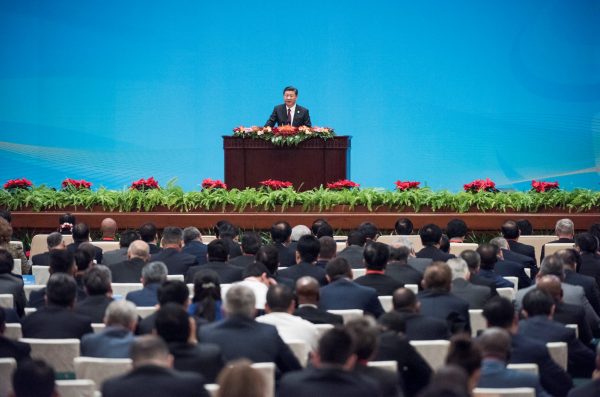In general, the year following a Party congress focusses on the transition to and consolidation of a new government, which leads up to a major statement on the direction of China’s economy. While a congress unveils the new Party leadership, Party leaders still need to be assigned to government positions, and that designation only occurs in March.
Party congresses review the last five-year term and map the broad contours of the next five-year term. But they outline priorities — not policies. The policy work begins after the congress when the massive Chinese political system tries to transform the vague and broad slogans of the Congress into specific measures.
Even after March 2018, the new government leaders take a few months to bed in to their new homes. We are thus unlikely to see any conclusive policies until mid-2018.
The most significant meeting event for 2018 — the Third Plenum of the 19th Party Congress — will be held late next year. A ‘plenum’ is the technical term for a meeting of the whole central political system and there are usually eight in each five-year term. The Third Plenum outlines where the government thinks the economy should go.
We have some early hints as to what direction the Party may take in 2018 (both generally and at the Third Plenum). There were some policy measures introduced during the Congress — such as establishing a body to supervise national resources — but they focused on improving governance rather than introducing new goals. There was little mention of the economy other than noting that China would focus on ‘high quality’ growth. Leading into the Third Plenum in 2018, we can probably expect governance reforms and various measures to define what ‘high quality’ growth means.
The following measures are most likely. There will be an outline of housing reform and a long-term plan to reform the real estate market. There will be an attempt to reduce the amount of leverage within the financial system as well as local government debt. Stiff punishments will be introduced for anyone who fails to meet environmental protection targets. And finally, China’s leader Xi Jinping has committed considerable personal capital to ‘eradicating poverty’ by 2020 — which would lift 40 million people’s household income to the current poverty line.
The Third Plenum is likely to announce these goals, as well as something on education and possibly health care.
But how will China achieve these goals, which are neither easy nor manageable, nationwide?
Balanced development is much harder than ensuring economic growth. China’s ruler Xi Jinping needs local leaders to implement his policies. The recent congress emphasised one thing above all others — that Xi wants to secure this collective effort through his image, ideology and through the Party rather than by leading a team using policy and the government.
Xi’s measures will aim to make him and the Party appear as strong as possible so that local leaders follow orders. In a theory of ‘if only they would do what I say’, it appears Xi thinks that corruption crackdowns are the key to policy implementation. It is not that simple.
Local leaders have thousands of different indicators, on all of which they have to perform. No matter Xi’s force, he cannot magically resolve fundamental issues in health care, education, the environment and other ‘contradictions’ through his diktat alone.
Reform requires convincing the thousands of local leaders to prioritise the same indicators. This is unlikely. For a local leader, it is much simpler to pick one or two measures that might best cover one’s backside and economic growth always stretches the furthest. There are too many local leaders to keep an eye on them all.
The announced goals often contradict other extant goals. Take for example Beijing’s push to use cleaner energy over this winter — a push recently abandoned as local governments were unable to meet central orders to change their energy mix, and there were fears that many would freeze to death. Beijing hurriedly rescinded the order despite the worthiness of the initial targets that forced local governments to burn less coal.
Economic growth will remain as is in 2018, or maybe even rise slightly. Local leaders will ensure progress in poverty alleviation and some small improvement in environmental protection goals (although this improvement may be due to business investing more in green tech rather than due to regulatory action). The quantity of growth will continue to come before quality.
Beyond 2018, Xi is playing a somewhat risky game. The institutions of the Chinese Communist Party are carefully crafted to insulate the leader from blame should anything go wrong. Xi’s use of his own standing and popularity raises popular expectations while weakening those institutions.
Putting your name on something sounds like a good idea if you are sure that you will get the credit. But if things go wrong, Xi will want others to take the blame.
Dr Ryan Manuel is an AsiaGlobal Fellow at Hong Kong University. He is completing a book on the rules of the Chinese political system.
This article is part of an EAF special feature series on 2017 in review and the year ahead.

